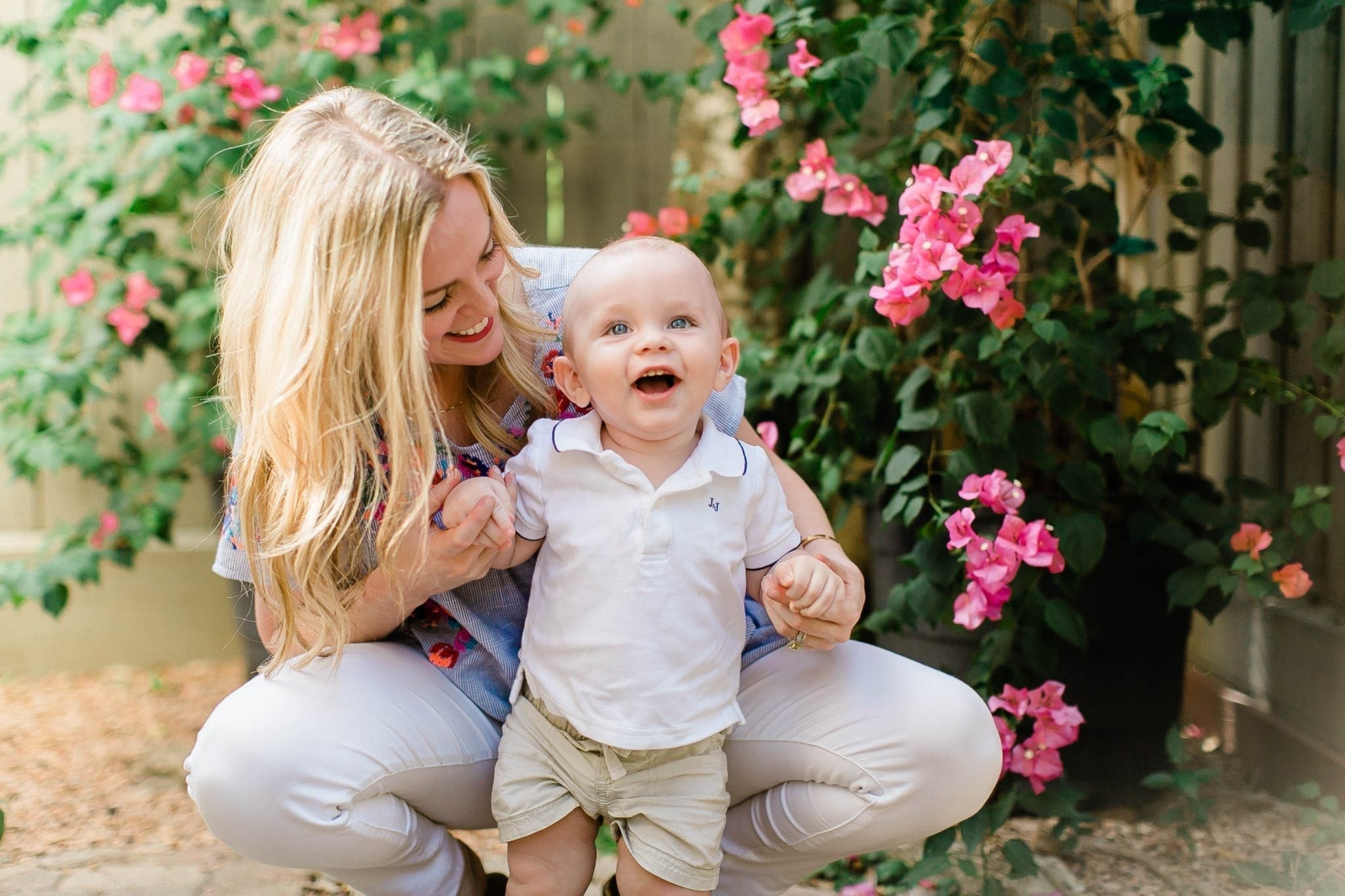It’s no secret that I try to choose natural options for my child when I can. I do this because I want to do everything in my power to give my son a healthy and safe start at life. This is why I decided to give birth to him at home with a midwife, why I chose to breastfeed him, why we use organic cleaning products in our house, and why I buy organic formula and try to always buy organic food whenever possible (when our budget permits). But something I hadn’t thought of was the outdoors.
My husband and I regularly take our son to the park down the street from our house. There’s a great playground, gated dog park area, tennis courts and a small field for games of soccer and baseball. What we didn’t realize is that every year all over the country many of the parks and fields that our kids play on are sprayed with a chemical cocktail of pesticides, herbicides and insecticides. My husband and I were both appalled when we looked into the details of these chemicals and their effects. I don’t know why it never donned on us before to think of what is sprayed on those fields, but when we learned about this we knew had to talk about it.
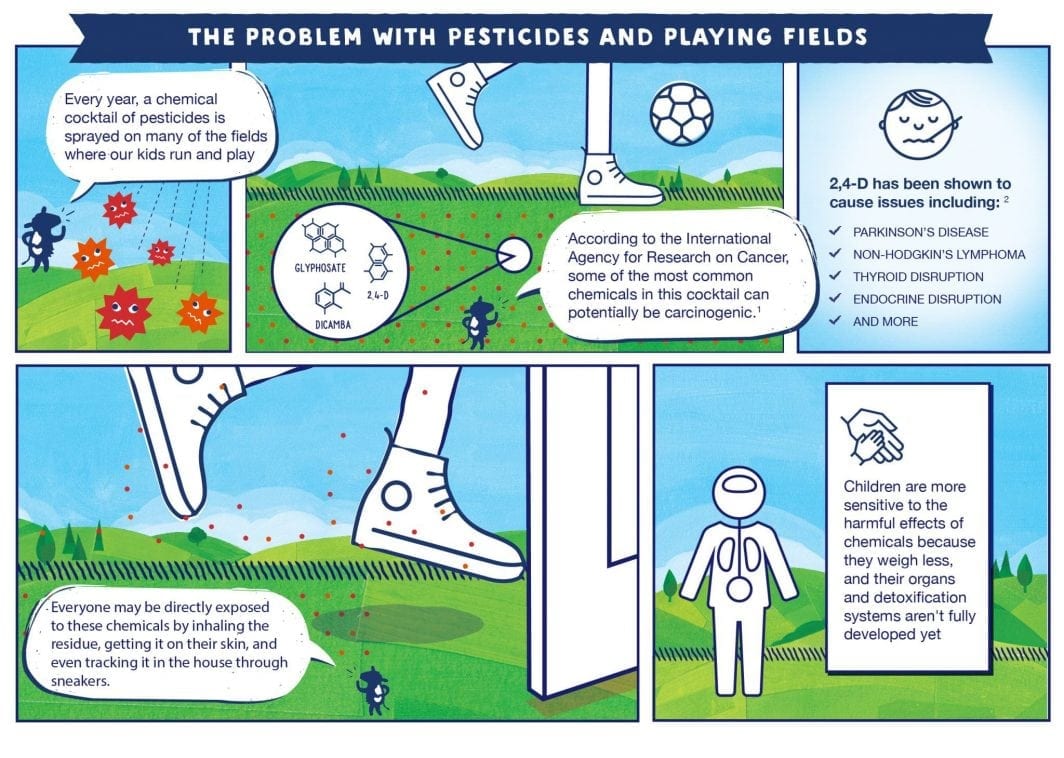
What is a Pesticide?
A pesticide is a substance used to kill insects, weeds, fungi, rodents, bacteria, or other unwanted organisms that are thought to be harmful to cultivated plants or to animals. I learned that the term pesticide is also generally used to apply to herbicides, fungicides, and various other substances used to control pests.
Why should we be concerned about these pesticides in our backyards and playgrounds?
Did you know that over one billion pounds of pesticides are used annually in the US? That’s a lot of chemicals! About 11% of those pesticides are used for parks, school grounds, and athletic fields. It’s obvious the benefits that these pesticides produce, such as green, weedless lawns and smooth playing fields, but what we don’t see or think about are the hazards that these pesticides cause.
According to a National Cancer Institute report, evidence clearly suggests that at current exposures pesticides adversely affect human health. This is something that we all need to be concerned about for our own health, but if you’re not thinking about yourself, let’s think about our children. These health risks include:
How StonyFIELDS is Making a Difference
You guys may have seen and already know that Stonyfield is a brand that our family loves and trusts. We discovered all this information about pesticides and parks from their new program StonyFIELDS. At Stonyfield, they believe that the air you breath and the fields you play in are just as important as the food you eat. This is why they are on a mission to make a change.
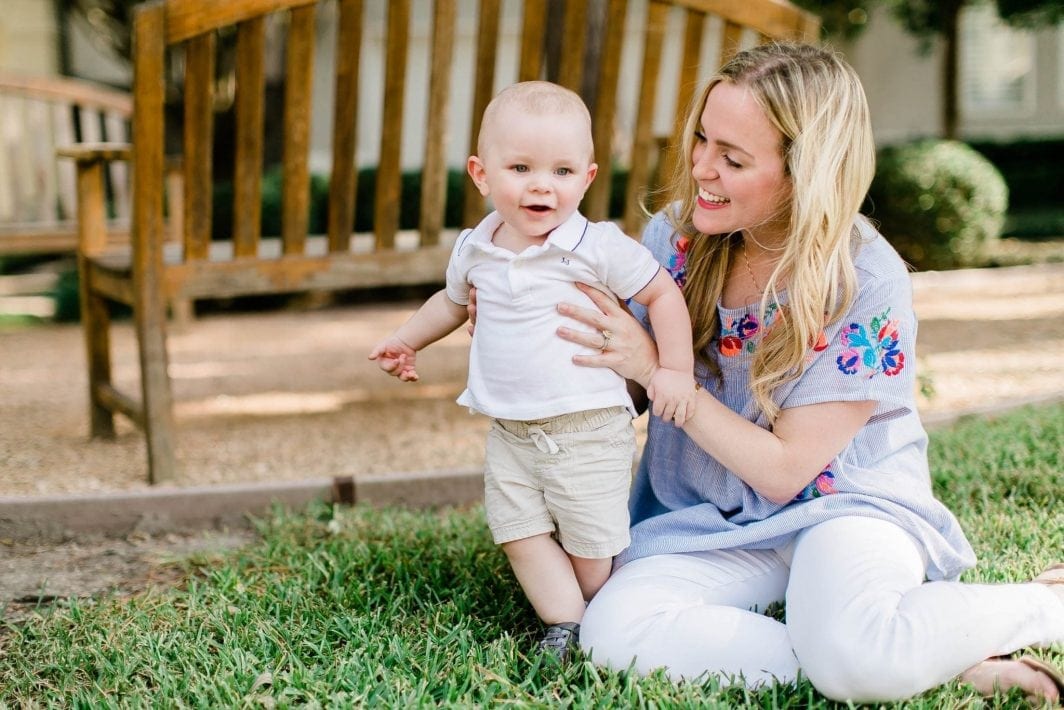
StonyFIELDS is partnering with communities across America to make all fields organic by stopping the use of harmful pesticides on playing fields. Their goal is to help communities across the US take the necessary steps to convert to organic field maintenance and empower families everywhere by providing tools and resources to make change locally and in our own backyards.
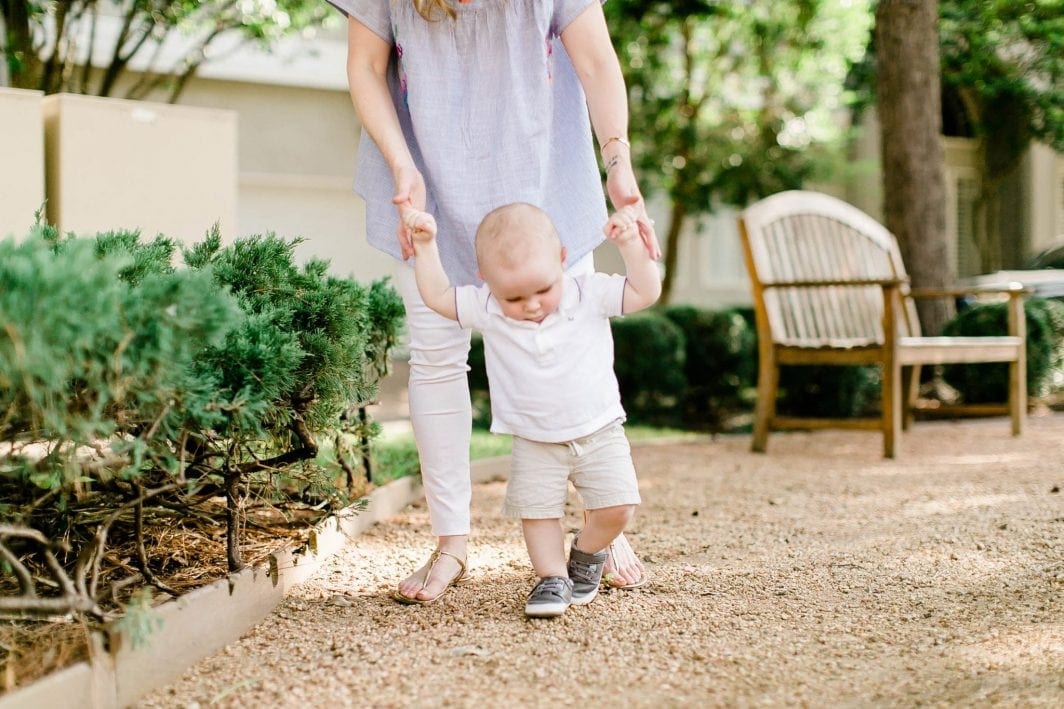
I was so excited to hear about this program because our family loves to play outside. Healthy play is so important for us as parents and for our kids. I was even more thrilled when I heard that one of the parks that StonyFIELDS is helping covert to organic is right here in Houston, TX! Here’s a list of the other communities that they are also kicking off with!
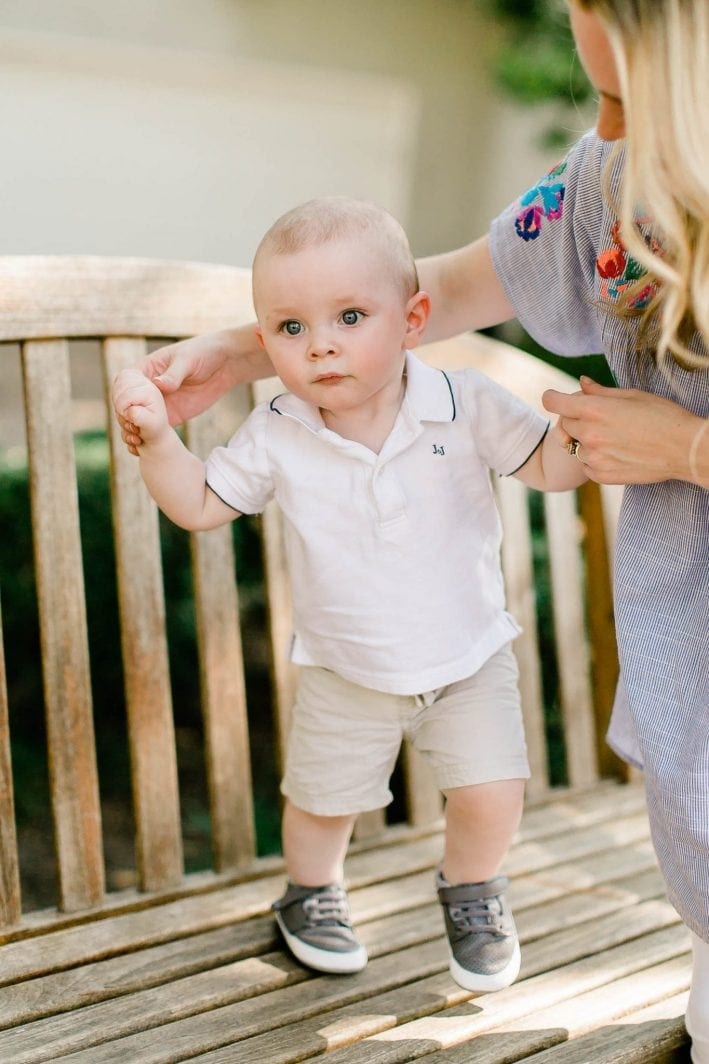
Think about it . . . 26 million kids play on fields, and most of these fields are sprayed with a mix of harmful chemicals. And our children are much more vulnerable when exposed to even small amounts of toxic chemicals. How?
- They breathe in more oxygen than adults.
- They are lower to the ground, breathing in pesticide residues in the air or on the floor and carpets, tracked in on clothing and shoes or by household pets.
- They have more permeable skin than adults, and they have more skin surface area in comparison with their overall body weight compared to an adult.
- They taste, touch and mouth everything they can get their hands on, putting them at greater risk of ingesting toxic material.
- Their metabolic pathways are immature. Their internal organs are still developing and are less able to detoxify chemicals.
You can read more about these health effects here.
How YOU Can Make a Difference
I don’t mean to share all of these facts to scare you. Yes, all of this information is scary, but it’s important as parents to help give our children (and our planet) a healthy future. Now that we know better we can do better and it’s obvious that we need to make a change. The good news is there is something that we can do about it!
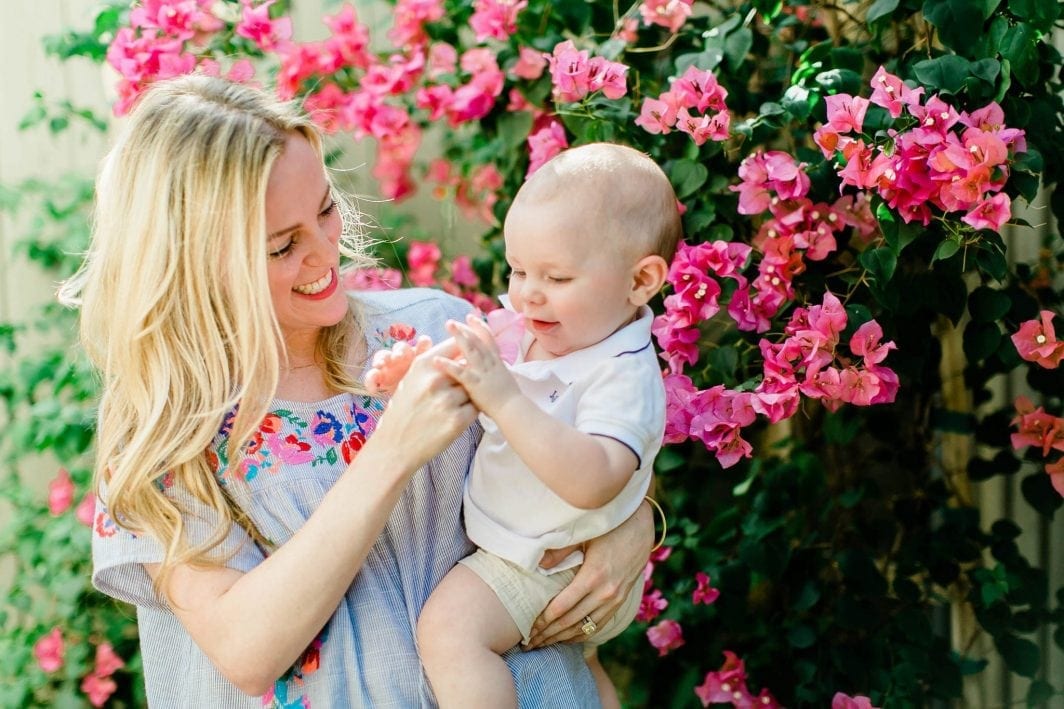
Changing Your Community
It may seem overwhelming to make changes in your city or town, but there is a whole list of resources of how other people have done it and where you can start too. Another option? You can nominate your community to get a donation! StonyFIELDS is selecting ten communities to convert to organic and with your vote (encourage your mom friends too!) a playing field could be selected and changed to organic in your neighborhood!
Changing Your Backyard
The best place for us all to start making a change is in your own garden or backyard. Most families are fearful that if they stop buying store-bought synthetic pesticides that they are going to have a yard full of weeds. This is simply not the case. The alternative is organic land management and care and here are four tips from StonyFIELDS to do just that:
- Test the Soil — A soil test will tell you what is going on in the soil and what you might need to do to correctly balance it for the best health of the grass and the life in the soils.
- Stop Using Toxic Pesticides — This is a no-brainer now. Rethink your choices when keeping pests at bay. Choose products made without toxic chemicals.
- Eliminate the Use of Synthetic Fertilizers — Synthetic fertilizers can be detrimental to a healthy biological soil system, but water-insoluble, organic fertilizers feed the life in the soil, and the soil in turn feeds the plant.
- 3-inch Grass Height — The ideal stress-free mowing height is around 3 inches. It is at this height when the grass can achieve maximum health, efficiently produce its own food through photosynthesis, begin to outcompete annual weed seed germination and many broad leaf weed pressures, develop deep roots, and stand up to drought conditions.
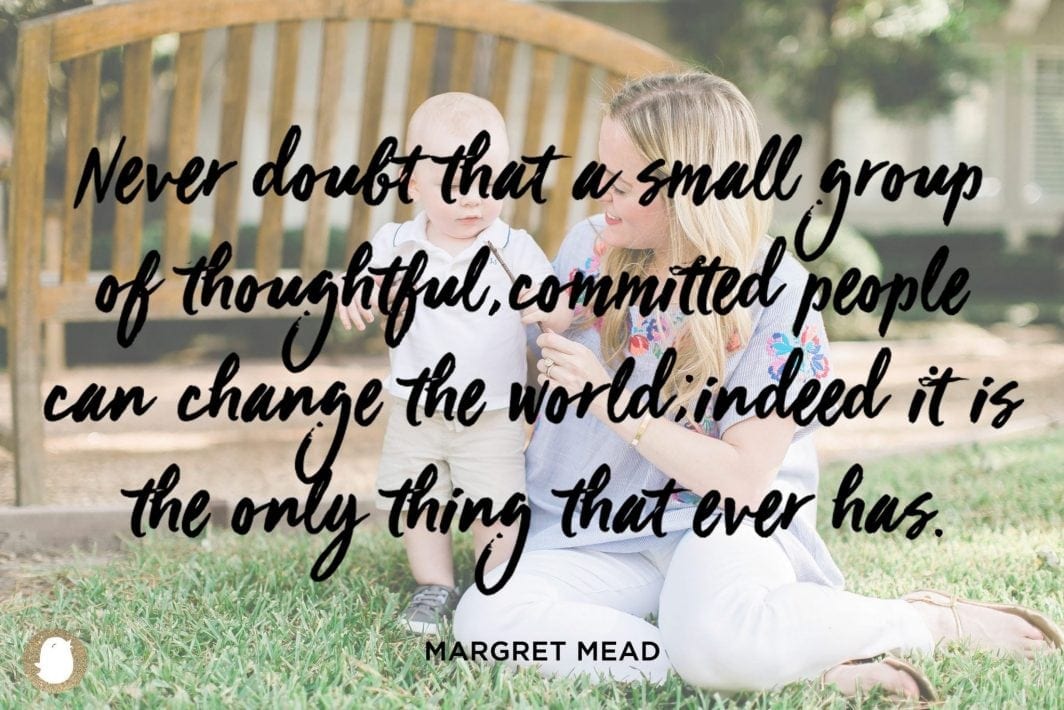
I hope this information has inspired you to make a change in your community and/or in your own yard. It definitely has for us. Now it’s time to act! Nominate your city, choose organic fertilizers, and go outside and PLAY! I recommend grabbing an easy on-the-go snack like Stonyfield’s Kids yogurt, and using the hashtag #PlayFree to recommend other families to do the same. 🙂
























